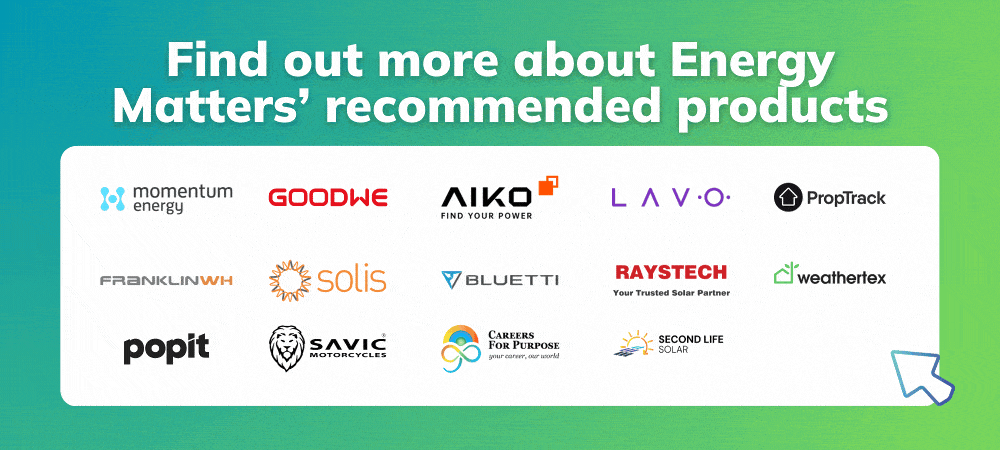Updated on 31 December 2024
Where clean energy intersects with technology, the need to integrate advanced computing is the key to opening new opportunities. The endless journey to discovering a viable return on investment in renewable energy means ensuring absolute optimisation and the best possible method of deployment for all panels and systems. So how exactly can we achieve the level of standards we realistically need to make a global transformation for the sector?
Integrating artificial intelligence (AI) into solar technology is a futuristic concept and a rapidly emerging reality. This powerful combination has the potential to maximise efficiency, reduce costs, and make solar energy more accessible to Australians. Energy Matters is here to help you explore these possibilities and make your transition to solar both easy and affordable.
Energy Matters helps Australian home and business owners receive personalised solar quotes through our large network of high-quality solar installers. With Energy Matters, you can be sure you’re getting the best possible deal on solar energy. We only work with reputable solar installers with a proven track record of delivering high-quality solar systems.
Understanding AI in solar energy
Artificial intelligence (AI) is revolutionising industries worldwide, and the solar sector is no exception. By leveraging machine learning algorithms, AI in solar energy can analyse large datasets, predict energy generation patterns, and optimise the operation of solar systems.
The role of AI in solar panel efficiency
One of AI’s most significant applications is improving solar panels’ efficiency. Machine-learning solar applications can analyse weather patterns, track solar irradiance, and adjust the positioning of solar panels in real time. This dynamic adaptation ensures optimal energy capture regardless of changing environmental conditions.
Predictive maintenance for solar systems
Machine learning algorithms can also enhance solar technology by predicting system faults before they occur. Using AI-driven predictive maintenance, solar operators can identify and resolve potential issues, minimising downtime and extending the lifespan of solar installations. This proactive approach reduces repair costs and improves the reliability of solar power systems.
Enter machine learning for renewable energy
Across the US and China, researchers are hard at work creating and experimenting with new solar panel modules. Dabbling with various chemistries to assess how base efficiency can be improved, the economic viability of these panels is becoming more and more clear.
According to CleanTechnica, these researchers are utilising hundreds of thousands of combinations in their trial labs before allowing them to enter the physical market. This experimentation is the key to creating a healthy proposition for machine learning to become a part of renewable energy. Source – Clean Technica: Researchers In US & China Use Machine Learning To Make Better Solar Panels.
At the University of Central Florida, a number of researchers are focusing on perovskite solar panels. Featuring a combination of inorganic and organic factors, this set has seen up to 28 per cent in increased efficiency during trial runs. This figure exceeds traditional silicon efficiencies and is quickly developing, so experts are already raising their hopes for the opportunities.
Recently, solar panels have decreased in price, mostly because of economic factors that allow for cheaper manufacturing, construction and distribution. Adding on increased efficiency is a cherry on top for consumers still sitting on the fence.
Smart solar technology: The future of energy
Smart solar technology integrates AI and IoT (Internet of Things) devices to create intelligent energy systems. These systems enable homeowners and businesses to monitor and control their solar installations remotely, enhancing user experience and energy efficiency.
Energy management systems
AI-powered energy management systems allow users to track energy production, consumption, and storage in real time. These systems use machine learning to predict energy needs and automate power distribution, ensuring minimal wastage and maximum efficiency.
Solar grid integration
With Australia’s growing adoption of solar power, efficient integration with the national grid is crucial. AI in solar energy facilitates seamless grid integration by forecasting energy demand and supply. Smart solar technology can balance loads, reduce grid congestion, and prevent power outages, ensuring a stable and sustainable energy infrastructure.
Machine learning solar applications
Australia’s vast solar potential, coupled with advancements in AI, offers exciting opportunities for innovation. Here are some key areas where machine-learning solar applications are making an impact:
1. Enhanced solar panel design
AI-driven design tools are used to create more efficient and durable solar panels. By analysing material properties and environmental data, machine learning can recommend design modifications that enhance performance and longevity.
2. Accurate energy forecasting
Predicting solar energy generation is critical for planning and grid management. Machine learning models use historical data and real-time inputs to provide accurate forecasts, helping utilities and operators make informed decisions.
3. Automated cleaning systems
Dust and debris can significantly reduce solar panel efficiency. AI-powered cleaning systems use sensors and algorithms to detect dirt accumulation and activate automated cleaning mechanisms, ensuring consistent performance.

Affording smart solar technology in Australia
As advanced as AI-driven solar technology sounds, its implementation doesn’t have to break the bank. In Australia, several incentives and financing options make it easier than ever to adopt smart solar solutions.
Government rebates and incentives
Programs like the Small-Scale Renewable Energy Scheme (SRES) provide financial incentives for installing solar panels and related technology. These subsidies significantly reduce upfront costs, making smart solar technology more accessible.
Finding the right solar incentives and feed-in tariffs
Your location, system size, and property type will determine the specific incentives you qualify for. Check our pages for the most up-to-date information and applicable rebates.
Solar financing options
Many Australian providers offer flexible solar financing options and plans, enabling households and businesses to spread the cost of solar installations over time. Options like power purchase agreements (PPAs) and solar loans ensure that everyone’s benefits of solar power are within reach.
Energy Matters’ solar expertise
Navigating the world of solar technology can be overwhelming, but Energy Matters simplifies the process. From system selection to installation, we’re committed to helping you harness the latest advancements in solar power at a price you can afford.
Energy Matters is here to guide you every step of the way. Energy Matters is the leading supplier of solar quotes in Australia due to its vast partnership network of high-quality solar installers. Our team of solar experts can help you get up to 3 FREE solar quotes from pre-qualified and vetted solar firms in your area.
Creating better form
Meanwhile, New York University, Stanford University and some members from NREL (based in Colorado) are setting their sights on using machine learning to create thin-film, organic solar panels. Although they are less efficient than traditional panels and the aforementioned perovskite combinations, they still carry a heavy advantage: they are more likely to generate greater amounts of electricity than other types. This is exactly why the material has been used in window pane technology, PV in consumer devices and a range of other applications.
These models still have room for improvement, but machine learning will help researchers create chemistries that offer far more efficiency and the ability to manufacture them at a cheaper price. While all of this is in its infancy, there’s a larger goal of relaying these benefits to consumers – something the industry, business owners and homeowners can look forward to in the future.
The road ahead: AI and solar power in Australia
Integrating AI and solar technology is still in its early stages, but the potential is immense. As machine learning algorithms become more sophisticated, they will unlock new possibilities for solar energy optimisation, storage, and distribution. These innovations are expected to play a pivotal role in helping Australia achieve its renewable energy goals.
Investing in smart solar technology benefits individual users and contributes to a greener and more sustainable future for the nation. Australia can lead the way in renewable energy innovation by embracing AI-driven advancements.
Don’t wait any longer. Energy Matters is your trusted partner in making solar technology affordable and impactful. Contact us today to start your journey toward a brighter, cleaner future!




















































